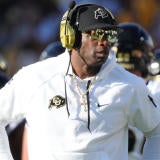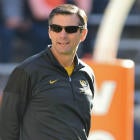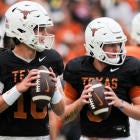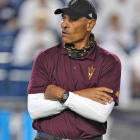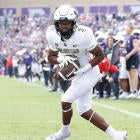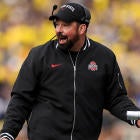DESTIN, Fla. — The SEC approved Friday a change allowing graduate student transfers to play in the conference without going through a waiver process.
The NCAA adopted a rule in 2006 to allow athletes who graduate to transfer and play immediately as long as their new school has a graduate program the old school doesn’t offer. The SEC applied the NCAA rule until 2011, when it opted out due to the backlash from Jeremiah Masoli’s transfer to Ole Miss after getting off Oregon’s team.
Now the SEC will allow schools to accept grad student transfers without a waiver if the transfers meet certain standards. Among the criteria for the transfer: always stayed eligible as an undergrad; no significant disciplinary issues at the old school; and earned all possible APR points. If a player doesn't meet those standards, a school can still go through the current process of seeking a waiver from the SEC office.
Once the transfer comes to an SEC school, the rule requires the player to make progress toward a graduate degree. If that doesn’t happen, the university won’t be able to apply the grad-student exception in that athlete’s sport for three years.
“We want people to make progress and be evaluated academically on their campuses while they’re competing rather than show up and play and leave,” SEC Executive Commissioner Greg Sankey said.
South Carolina proposed the SEC rule change in large part for competitive purposes.
“I think if somebody has already graduated college, they’ve already proven they’re good, quality people, and if you do more background checking, I’d be supportive of it,” South Carolina president Harris Pastides said.
Florida president Bernie Machen opposes the NCAA rule allowing immediate eligibility at a new school if a player graduates. Florida has recently added two high-profile graduate transfers: Virginia football player Jake McGee and Michigan basketball player Jon Horford.
“If they really wanted to transfer somewhere else, they should sit out a year,” Machen said. “Why didn’t Horford stay at Michigan another year? Because he had a free pass.”
When asked why not give athletes the flexibility to transfer once they’ve accomplished the goal of graduating, Machen replied, “Go to grad school at Michigan. They have some pretty good grad schools. … It’s really just a way for a school to fill a void at the very last minute, or a player going to get more playing time without having to sit out.”










